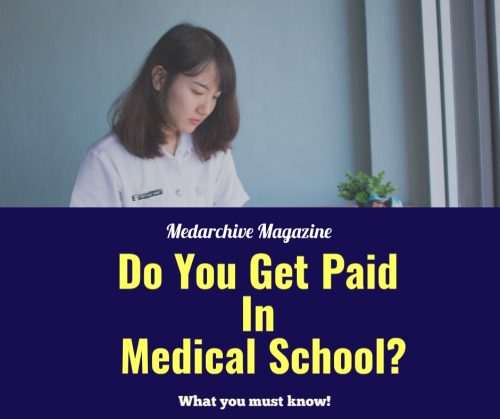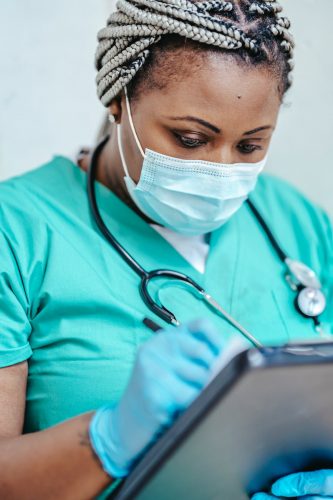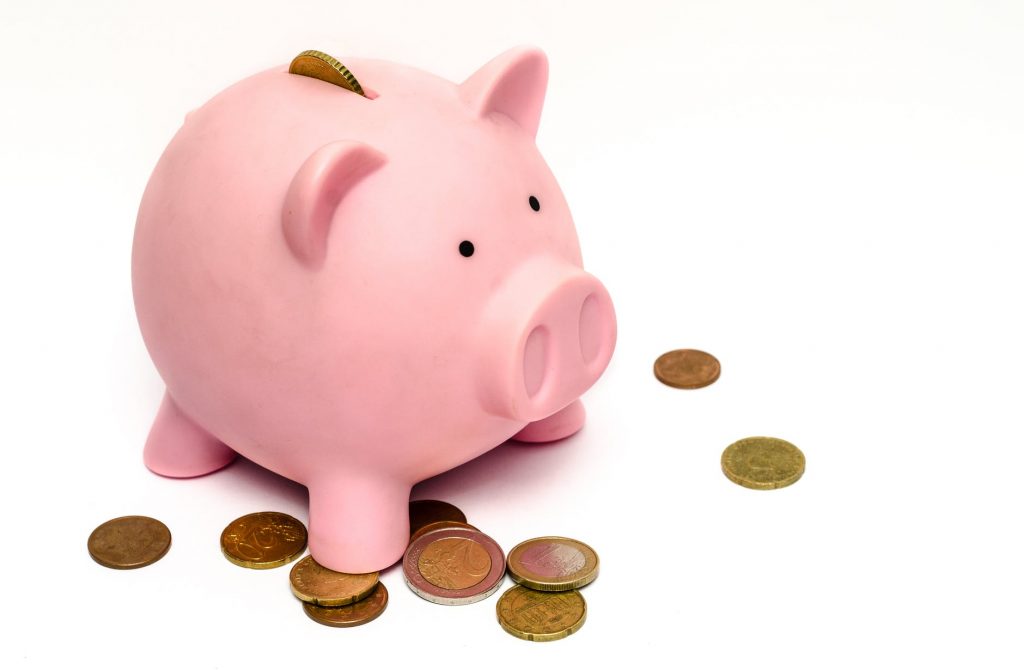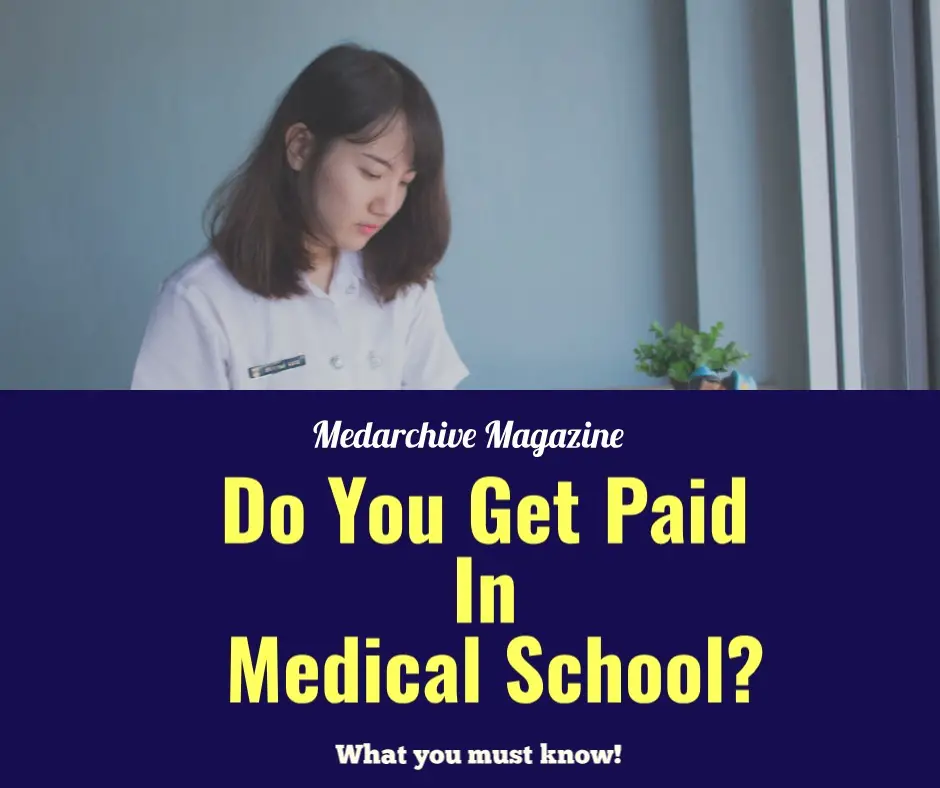Have you ever asked this question; Do you get paid in medical school?
Or Do medical students get paid while passing through medical school?

A lot of people wonder if medical students get paid and here is the simple short answer;
No! Medical students are not paid in medical school.
What Are The Stages In Medical School? And Financial Requirements
Medical school is a long and rigorous process with many years of intense study in front of you.
It’s also very expensive!
The price for medical school has increased by about 5% each year, and the average cost can be up to $200,000 per year for medical schools in the United States.
And for medical schools in Nigeria, the tuition for medical schools is around ₦55,000 average per session for Federal Universities.
And
over ₦200,000 to ₦500,000 for states and private universities respectively.
So with all this time and money invested, you do not get paid!
It’s true the answer may not be what you were expecting.
Some people probably may have heard rumours about medical students in the USA, Canada, United Kingdom or Australia being paid during their clinical classes.
But this fact is invalid.
And that is the sad truth.
So below are the stages in medical school;
1. Preclinical Period:
The Preclinical Period is that stage in medical school before you commence your clinical rotations.
In simple terms; medical students are not allowed to interact with patients during this time.
You are being introduced to the basic medical sciences where you take courses like;
- AnatomyPhysiology
- Biochemistry
- Pathology and
- Pharmacology
This period may take up to 4 years to complete in most Nigerian medical schools.
Also, you take two major medical school exams which are your first two professional medical exams in Nigerian medical school;
The 1st professional exam (2nd MBBS exam) and the 2nd Professional Exam (The 3rd MBBS exam).
2. The Clinical Rotations
This is the period from when medical students start seeing and attending to patients in the hospital till they graduate from medical school.
They are placed under different units headed by consultants with other residents and the medical students are being rotated to other units after they must have acquired the basic skills needed for each unit.
Medical students acquire lots of valuable skills within this period that equip them better for their future careers as medical practitioners.
They are taught clinical skills like;
- History taking
- Physical examination
- Investigations and
- Treatment and management of patients
Courses they take during this time include;
- Obstetrics and Gynaecology
- Paediatrics
- Medicine
- Surgery
- Radiology
- Family medicine
- Psychiatry
- Medical psychology
- Ortolaryngology
- Anesthesiology
- Accident and Emergency Medicine, etc.
Do Medical Students get paid during rotations in the clinic (clinical rotations)?

No, medical students do not get paid during clinical rotations.
On the other hand, some medical schools in the United states are funded through government grants or private donors due to the high cost.
And if you are not lucky enough to be a beneficiary of such grants, you may need to try other different ways of making money to fund your tuition or for your upkeep.
So from when do you get paid in medical school?
Medical students get paid after they must have become doctors and completed their MBBS degree.
Why Don’t Medical Students Get Paid before this time?
As you can see, medical students actually spend most of their years learning under people and acquiring valuable skills.
So it’s not surprising that they don’t get paid.
In fact, not only do they not get paid, they are required to pay in huge sums for the training they receive under their consultants.
It usually takes extra effort and time for the consultants to see patients in a teaching hospital.
And at the same time teach and train medical students who have been placed under them.
So part of the money paid by the medical students during this time is used to compensate the consultants for their work in training them.
Hence, it’s very unrealistic to pay medical students during their clinical rotations and would lead to increased cost on the teaching hospital if they choose to do otherwise.
Do medical students get paid during internship or house job?
Yes!
Once you have completed your medical school, you get paid during your medical internship and in some countries like Nigeria, you also get paid after your one- year medical internship.
That is during your National Youths Service.
Do medical students get paid during residency?
After graduating from medical school, and having completed your medical internship, there are different career paths you may follow after the MBBS degree.
A lot of people choose;
The academic pathway; where they enroll for a masters program, get a PhD, and become lecturers in teaching hospitals and in universities.
The Public Health and research pathway
.
Business, Politics and other career paths outside medicine
.
And a good number enroll into a residency program.
In residency programs, you are being trained to become a specialist in your chosen field in medicine or surgery.
And during this period, you get paid as you learn. And in huge sums.
In subsequent posts, we will discuss how much Doctors are paid in different specialties.
What Can A Medical Student Do To Earn Money Or Get Paid?
There are a number of different ways that medical students can make money.
Many of them are online for easy accessibility and for convenience.
But there are also some ways you can earn good money offline by doing a part-time job.
It is important to be aware of your options so you can decide what you need and how much you want to make.
The most common way for medical students to make money is through a part-time job.
This is an option for the more well-off student who needs more money or the less fortunate student who needs some extra cash.
It’s important to note that, although these may be the most common way to make money as a medical student, it isn’t always the best route.
Some jobs may have more hours than you would like or require very long commutes.
Here are some ways medical students can make money and also some tips on finding the right fit.
These ways have been classified as offline and online ways of making money as a medical student.
And they will just be listed for reference purposes.
A more detailed post on how to make money online as a medical student is available.
What can a medical student do to earn money Offline?
- Tutoring: You can teach medical school subjects you are very proficient in to younger colleagues.
- Find a work within or off-campus; Waiter, dish washer, etc.
- Become an exam simulator or a standardised patient.
- Sell your study notes (offline or online)
- Promote a study tool
- Win a scholarship
- Sell your old medical textbooks
What Can a medical student do to earn money Online?

- Start a blog (You can get this blog guide for help)
- Start a YouTube channel
- Be an affiliate marketer
- Sell study notes online
- Cryptocurrency trading
- Become a freelancer
- Be a copywriter
- Sports betting
- Be a brand ambassador or an influencer
- Follow this website for more posts like this.
Conclusion
You have seen the answer to the question; Do you get paid in medical school?
So in summary, medical students do not get paid during clinical rotations or in their pre-clinical years.
However, the reverse is the case.
Medical students pay hugely to be trained due to the resources spent on training them.
Some medical students who are lucky enough to be sponsored via government grants or grants from private institutions or philanthropists usually have no problem taking care of the tuition.
Also, students who have well to do parents or guardians also have little to worry about.
But indigent students may find it hard to cope.
And may finally resort to taking loans from financial institutions or the government.
And/or engaging in extracurricular activities that could earn them some money.
Usually, students who have profitable skills have little challenges as they could easily offer them out for money.
Furthermore, after medical school, you can start getting paid as an intern, during your youth service, as a resident, lecturer, and as a general practitioner.




